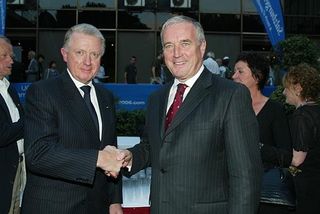Cycling in Olympics not under threat by IOC
UCI presidents will not face investigation

While the International Olympic Committee will await the full decision of the UCI before stripping Lance Armstrong of his 2000 Olympic Games bronze medal, one thing it is not intending to pursue is investigations into those in charge of the UCI during the time of cycling's deepest doping problems.
A report by Belga today expanded on the IOC's position, which came alongside the UCI's announcement on Monday that it would uphold the decision of the US Anti-Doping Agency to ban Armstrong for life, stating that the IOC would not investigate the UCI's role in the widespread doping that occurred in the 1990s and into Armstrong's seven-year reign.
The USADA report did not contain concrete evidence of misdeeds by the UCI, but cycling's teams association, the AIGCP today called for an independent commission to be formed, perhaps under the World Anti-Doping Agency, which would look into all the anti-doping practices employed in cycling and assess their performance.
The WADA president John Fahey asked yesterday that if doping was as widespread as the USADA report maintains, it is relevant to ask "Who was stopping it? Who was working against it? Why wasn't it stopped?"
The UCI president at the time of Armstrong's now-disqualified seven Tour de France victories, Hein Verbruggen, remains an honorary IOC member and honorary president of the UCI, while current president Pat McQuaid is a current IOC member for Ireland.
The IOC maintains that cycling is under no threat of being removed from the Games. "It would not be correct to punish the vast majority of clean athletes if we exclude the UCI from the Games," said the IOC, adding that while the UCI often finds itself in the center of major doping scandals, "it is also a pioneer in the fight against doping".
Get The Leadout Newsletter
The latest race content, interviews, features, reviews and expert buying guides, direct to your inbox!
Most Popular


